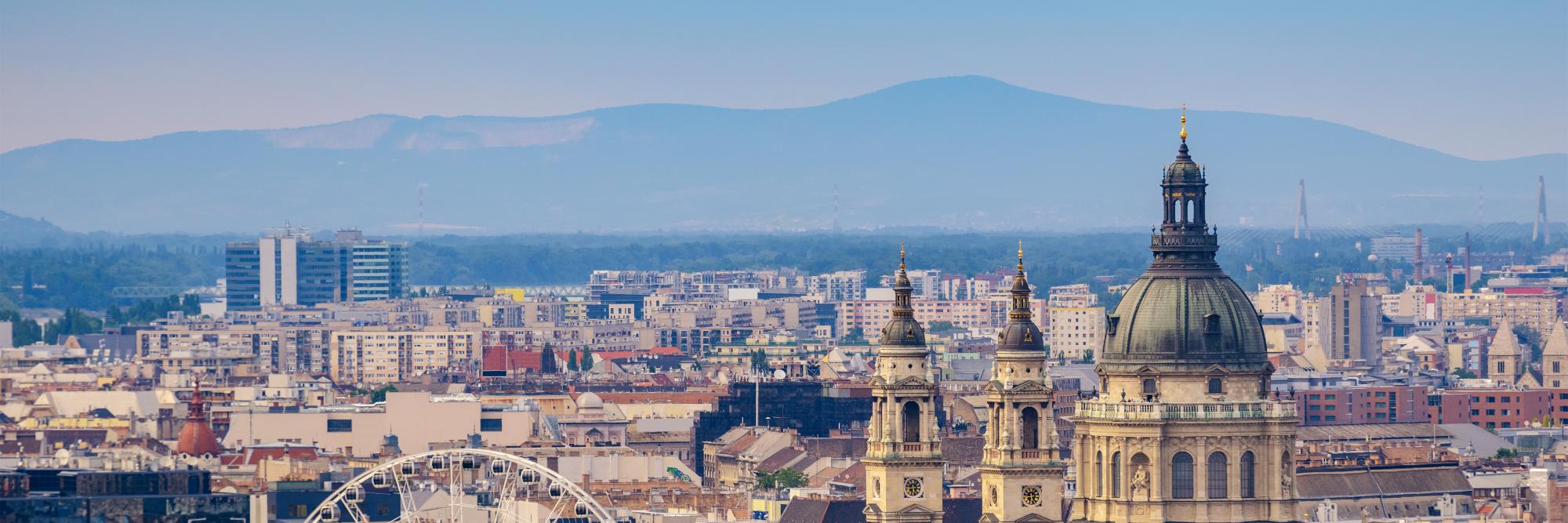 Jake, an American expat living in Hungary, made his move abroad both to avoid the ruined US job market and to experience the wonders of the expat realm. Life in Hungary has allowed him to realise he has a propensity for both peanut butter and Mexican food, and perhaps more importantly, that this wide world is filled with the potential for countless discoveries.
Jake, an American expat living in Hungary, made his move abroad both to avoid the ruined US job market and to experience the wonders of the expat realm. Life in Hungary has allowed him to realise he has a propensity for both peanut butter and Mexican food, and perhaps more importantly, that this wide world is filled with the potential for countless discoveries.
Read more about Hungary in the Expat Arrivals Hungary country guide or read more expat experiences in Hungary.
About Jake
Q: Where are you originally from?
A: I’m from El Sobrante, California. It’s about 30 minutes from San Francisco.
Q: Where are you living now?
A: Budapest, Hungary, in the 14th District.
Q: How long you have you lived here?
A: I’ve been here since August 2009.
Q: Why did you move; what do you do?
A: I graduated from San Francisco State University in May 2009 and realised that finding a job at home might be a bit difficult. I wanted to gain some overseas experience, anyway. I earned my TESOL (Teaching English as a Second or Other Language) certificate, and am now teaching English to first and second graders at a primary school near Varosliget, the City Park.
About Budapest
Q: What do you enjoy most about Budapest, how’s the quality of life in Hungary?
A: No matter what day of the week it is, day or night, there is always something fun going on in Budapest. It’s almost impossible to get bored in this city. I also enjoy getting lost in the city and finding new cafés, restaurants, or cool side streets to walk down.
Q: Any negatives? What do you miss most about home?
A: I live outside the downtown area, so it’s nice to have some greenery around my area. However, seeing rubbish in the streets or the amount of graffiti can really give the city a negative feel sometimes. I know I should say I miss my family most, and they’re up there, but peanut butter and Mexican food top my list. Fortunately, there are a few places here to find both of those that hold me over until my next trip home!
Q: Is Budapest safe?
A: I’ve walked around Budapest at all times of the day (and night), and haven’t had any issues. Budapest, like any city, has some troubled areas, but as long as you stay alert and are aware of your surroundings, you shouldn’t have any trouble.
About living in Budapest
Q: Which are the best places/suburbs to live in Budapest as an expat?
A: There are two sides to the city, Buda and Pest. If you’re looking for a more laid-back, green atmosphere, somewhere on the hilly Buda side (I district) might be better for you. Living in Pest offers plenty of opportunities to find a café or ruin pub and hang out all night, so you may want to look for a place in the V, VI, VII, or VIII district. If you prefer a little more peace and quiet, somewhere in the XIII or XIV district might suit you better.
Q: How do you rate the standard of accommodation in Hungary?
A: When I first got here and saw all the Soviet-style apartment blocks, I was afraid of what my apartment was going to look like. However, the exterior definitely does not match the apartments within! Most families/apartment owners take great care of their apartments, from renovations to cleanliness, so finding a suitable apartment shouldn’t be an issue.
Q: What’s the cost of living in Hungary compared to home? What is cheap or expensive in particular?
A: The cost of living in Hungary is definitely cheaper than in the US, but not in all areas. Eating at a restaurant can be cheaper, but often is more or less equal to what I’d pay at home. I do feel like my money goes a lot further here. While fruits and vegetables can be much cheaper, items like cereal, soda, or chips, cost a bit more. If you’re looking for specialty items from home, like peanut butter, expect to shell out two or three times what they cost at home!
Q: What are the locals like; do you mix mainly with other expats?
A: For me, all the locals I’ve encountered have been friendly and helpful. In Budapest your chances of meeting someone who speaks English is much greater than in the countryside. For the most part, I’ve been hanging with other teachers in my program, but I also have some Hungarian friends (and family) that I hang out with, too!
Q: Was it easy meeting people and making friends?
A: If you’re hanging out at pubs or attending local events, I don’t think you’ll have too much trouble meeting people. Like I said, there’s always something going on, and if you go to an event that interests you, I’m sure it’ll be easy to start a conversation!
About working in Budapest
Q: Did you have a problem getting a work visa/permit?
A: I teach here through a program called CETP, or Central European Teaching Program. They helped with all the paperwork and getting my work visa taken care of. Unfortunately, I have a Hungarian last name, which made the bureaucratic process a lot more stressful. However, I’ve never spoken to anyone who had anywhere near the nightmare of a time I did, so it shouldn’t be a problem!
Q: How would you rate the healthcare?
A: Hungary has universal health care, and I’ve had no trouble going to the doctor. It is definitely more affordable than in the United States, especially for services like dental care. I’ve heard that even Austrians come to Hungary to get their dental work done, so it must be good!
And finally…
Q: Is there any other advice you like to offer new expat arrivals?
A: Just go with the flow. Things can get frustrating here sometimes, what with the difficult language and the bureaucracy of things, but don’t let any of it bog you down. Be prepared to just ride the wave, and you’ll have a great time here!
There is so much going on in this city that you should never have to sit at home bored unless you want a night in! And definitely take advantage of Hungary’s location. Travelling to another country by train is often a pretty short and cheap trip, but there are so many cities in Hungary worth visiting that it’s hard to pick where to go next!
~ interviewed March 2011
> Are you an expat living in Hungary? We'd love to hear your story. Open the questionnaire here, copy into an email and send it back to [email protected]



